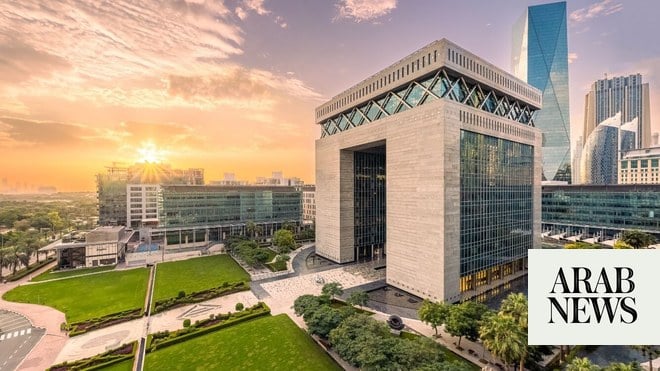
IBM will deliver the new service aimed at speeding up transaction processing times
LONDON: Dubai has partnered with technology giant IBM to launch the first government-backed blockchain platform in the Middle East, with the aim of digitizing the provision of day-to-day services for the emirate’s residents and businesses.
The platform is part of the government’s Smart Dubai initiative to use technology to improve happiness and ensure government services are paperless by 2021.
Blockchain technology promises to speed up transaction processing times, for example making it quicker and easier to pay water bills or apply for business licenses.
The IBM-powered system will process transactions through the IBM Cloud environment, enabling organizations to keep their data in-country and lower costs by conducting transactions locally.
“Dubai has been a pioneer in blockchain technology since its inception, while other major cities around the world were reluctant to embrace it for city-wide implementation,” said Aisha Bin Bishr, director-general of the Smart Dubai Office.
“The Dubai Blockchain Strategy set a clear path for the emirate to have the world’s first fully digitized government by 2021,” she said.
In the last few years Dubai has launched various proof-of-concept and pilot blockchain initiatives across different government agencies including roads and transport, energy, health and education, said Amr Refaat, general manager at IBM Middle East and Pakistan.
“Through the new service, these organizations will have the ability to transition their blockchain developments into full-scale production,” he said.
The first project to be launched on the new platform will be the “Dubai Pay Blockchain Settlement and Reconciliation System.”
This allows government entities to conduct transactions with other official bodies, banks or financial institutions in real-time rather than the 45 or so days it used to take to process payments. Previously department of finance staff had to go through payments collected via various portals to manually reconcile and settle them.
The Dubai Electricity and Water Authority (DEWA) and the Knowledge and Human Development Authority were the first government agencies to trial this system.
IBM has also recently worked with Dubai’s Department of Economic Development (DED) to launch its unified corporate registry using IBM Blockchain, said Refaat.
“The aim of the registry is to digitize the process of issuing business licenses and exchanging commerce information for business owners, investors, entrepreneurs and startups, enabling them to conduct transactions digitally in real-time and in a trusted and secure environment,” he said.
“We have also worked with Dubai Airport Freezone Authority (DAFZA) to transform and automate the freezone commercial licensing and renewal process.
“Through IBM Blockchain, they can manage digital blockchain transactions and accurately and quickly verify documents, enabling businesses to establish operations in the UAE in a time efficient manner,” he said.
Adopting blockchain technology could save Dubai 5.5 billion dirhams ($1.17 billion) a year in document processing costs alone, according to Smart Dubai’s website.
The emirate is aiming to become the “global benchmark” for the city-wide implementation of blockchain services, the government body said.












